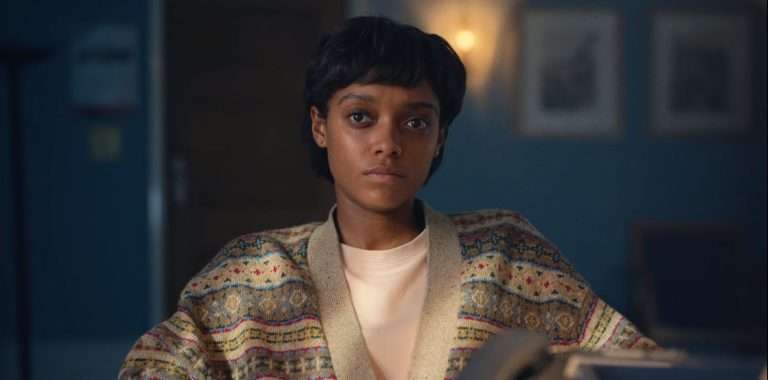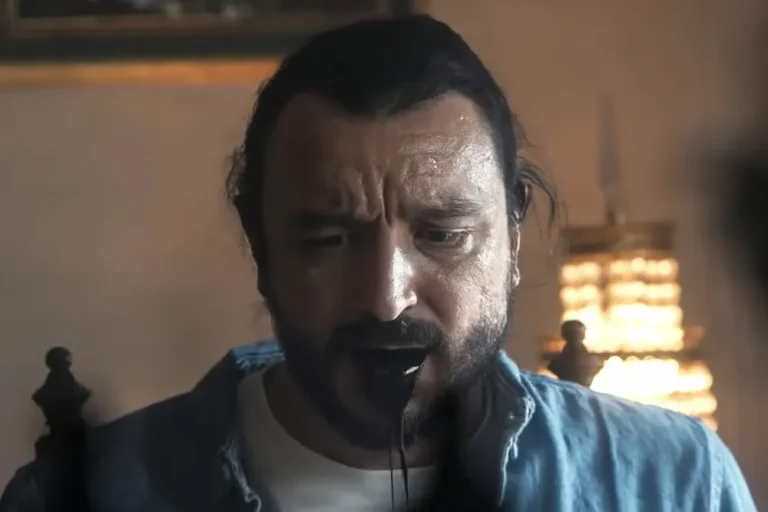How Does Jordan Peele’s NOPE Measure Up To His Previous Two Films?: In the past five years, horror movies have gained more traction amongst general audiences and cinephiles. Dani’s Midsommar flower dress has become instantly recognizable, and people are on the edge of their seats, ready to trash whatever horror franchise remake will make rounds next. No matter where you stand on the current influx in the horror movie genre, there is no doubt that writer/director Jordan Peele plays a significant role in the culture.
Jordan Peele’s film, “NOPE”, depicts workers in rural California witnessing a haunting entity emerging from a cloudy sky. With Peele exploring plotlines that involve white people mind-swapping with black people and underground clones wreaking havoc on the nation, people have been understandably stoked watching his third film. Outside of the creative concepts taking place in Jordan Peele’s films, he also has portrayed black people as the dominant protagonists in a genre known for excluding black people as a whole or killing them off at the first chance they get. People are quick to label Peele’s work as social commentary, saying it holds a mirror up to society. While that’s not false, it’s essential not to neglect that his work is undeniably black and centered around racism. For these reasons, Peele has garnered a loyal fanbase and attracts attention whenever he announces a new project.
Looking back on Jordan Peele’s debut film, Get Out, people had previously associated him with the sketch comedy show Key and Peele. This show aired on Comedy Central, where Kegan Michael Key and Jordan Peele co-starred for five seasons, the last episode airing in 2015. Before “Get Out” there had not been a popular horror film truly centered around race since 1992’s Candyman. Needless to say, this movie had a lot of buzz and spectacle floating around it. While people may have come due to curiosity, they stayed for the astounding filmmaking. Get Out shook audiences and was a massive point of public discourse. Audiences not only got to witness a fresh and well-made horror film but there was finally a movie that addressed racism toward black people in a creative way that wasn’t reliant on slavery or segregation plot lines that people had become familiar with. This impact alone made the following film highly anticipated, and people were eager to see it in theaters.
The trailer for Us dropped on Christmas day in 2018, and among the ‘Merry Christmas!” tweets were considerable reactions to the new horror trailer. Luniz’s “Got 5 On It” remix had the black community going buck wild, and fan theories started to make rounds without people having even seen the film. After being released in theaters, the response to this film was generally a lot more mixed than “Get Out,” but the movie was still incredibly successful. The humorous moments tended to be a lot less subtle in Us. While Get Out required the audience to sit with the story to wait and figure out the motives behind the movie’s antagonist, Us revealed that same thing early on in the movie-watching experience. Nevertheless, the movie garnered a lot of attraction, and people were grasping at straws to find symbolism and hidden messages within the film. With eerie images of people in red get-ups holding scissors and replicating the “Hands Across America” image, there was so much opportunity to pull from your own perspective regarding the film’s commentary, even if it was blatantly said at times.
In July of this year, NOPE was released, making it the third movie in Peele’s filmography. Jordan Peele has continued to cast black actors as his protagonist, with Keke Palmer and Daniel Kaluuya playing two of the main characters. This project addresses social complexities in a much more subtle manner than his previous work. It should not be ignored that this is the first film Peele has released since the Covid-19 pandemic and 2020 Black Lives Matter coverage. This isn’t to say that NOPE has been directly influenced by these moments. Still, because of the previously mentioned comradery between Peele and the black community, it is essential to acknowledge that his escapist films play a more pivotal role in entertainment now than ever. Much imagery in the film’s theme park, Jupiter’s Claim, depicts heavy themes of the Gold Rush era, a point in American history when people migrated to California to pursue mining gold.
As a result, the demographics in the region changed since many people flocked there for economic opportunity. With NOPE having an amusement park surrounding this period, there are many connections to be made regarding prosperity and opportunity. Palmer and Kaluuya’s characters are running a family horse ranch that they are deeply connected to, especially amid recovering from a huge loss. Much like many historical civilizations, they have to deal with mysterious outside forces threatening their land and business. The thread that plays into the uniqueness of NOPE is the seemingly aimless involvement of animals, specifically, the infamous Gordy’s Home! Scene. With the entire Haywood enterprise relying on horses and Gordy the chimp playing such a memorable part in the movie, we are reminded of how unpredictably violent animals can be despite our best efforts to pacify them. And if the actions of domesticated animals can be that erratic, what are to make of the creatures that are not from here? Historically, it’s been, colonizers. In this movie, it’s the supernatural.







![Love in Kilnerry [2022] Review – A small-town comedy that feels like a Lifetime movie minus the comedy](https://79468c92.delivery.rocketcdn.me/wp-content/uploads/2022/08/Love-in-Kilnerry-Movie-Review-2-768x426.jpg)
